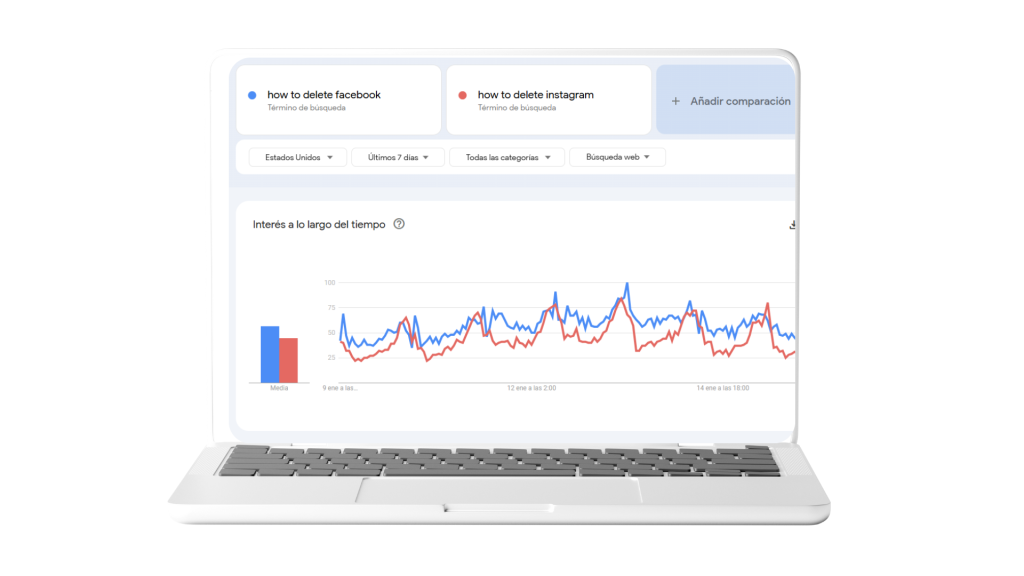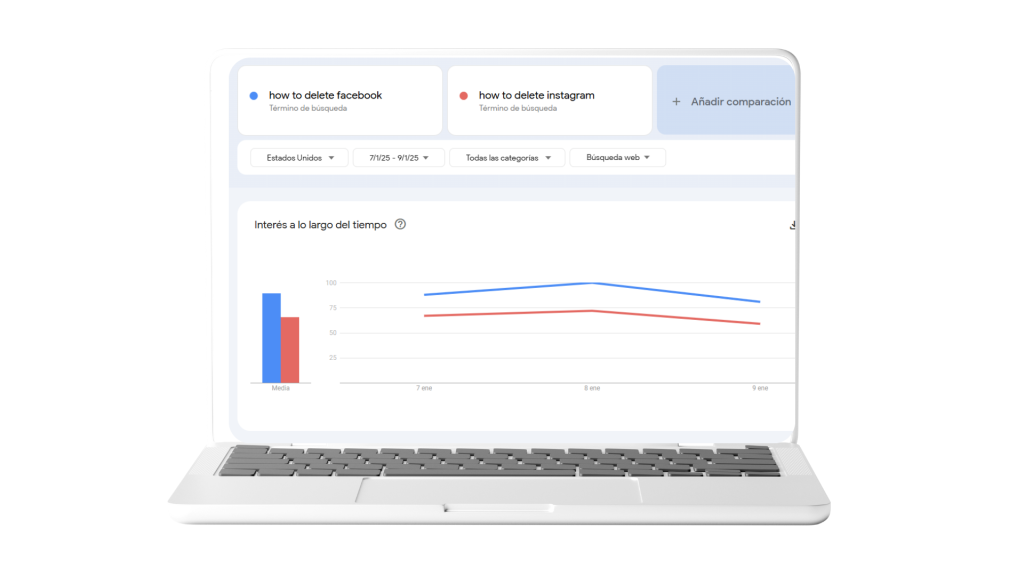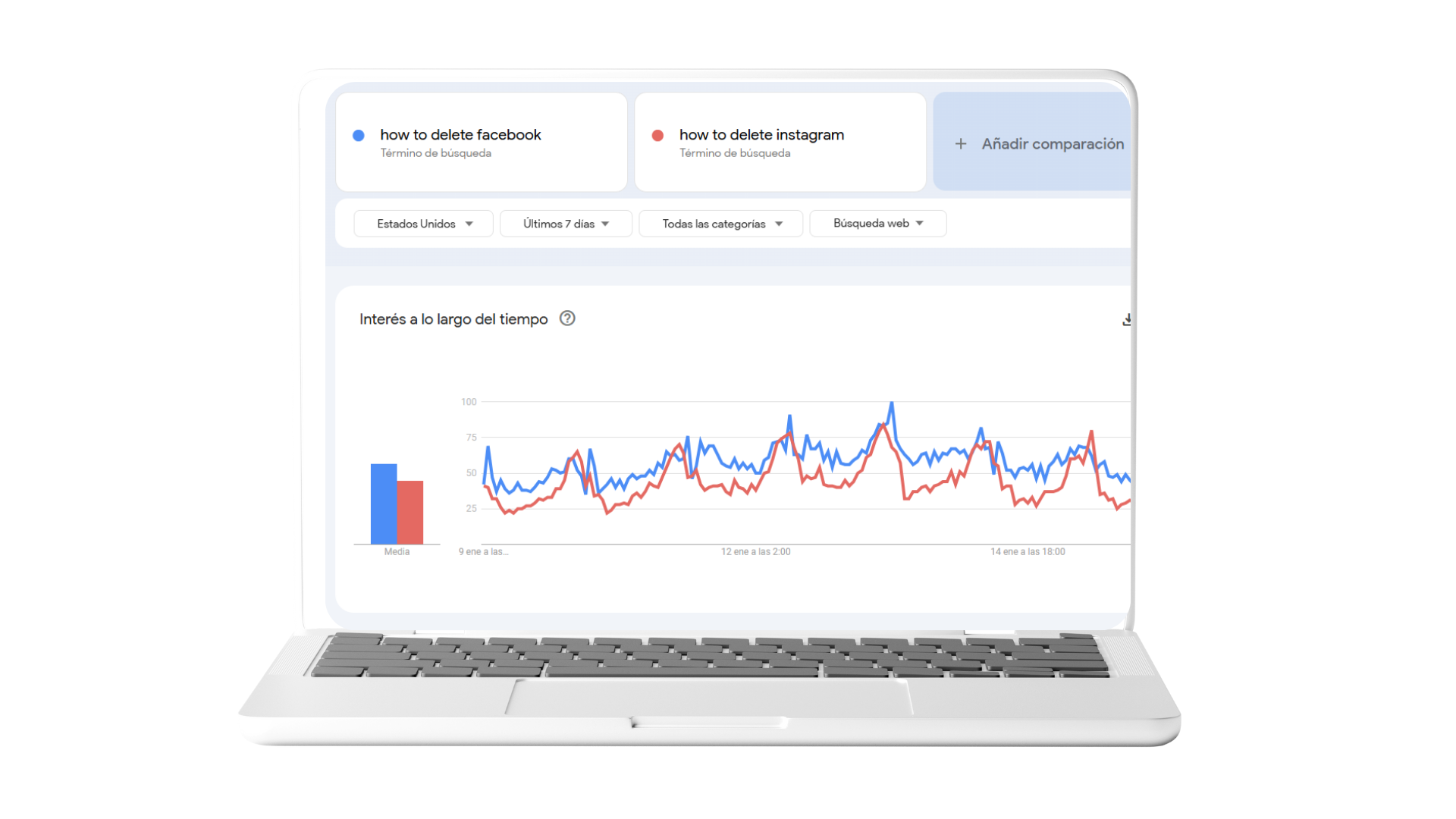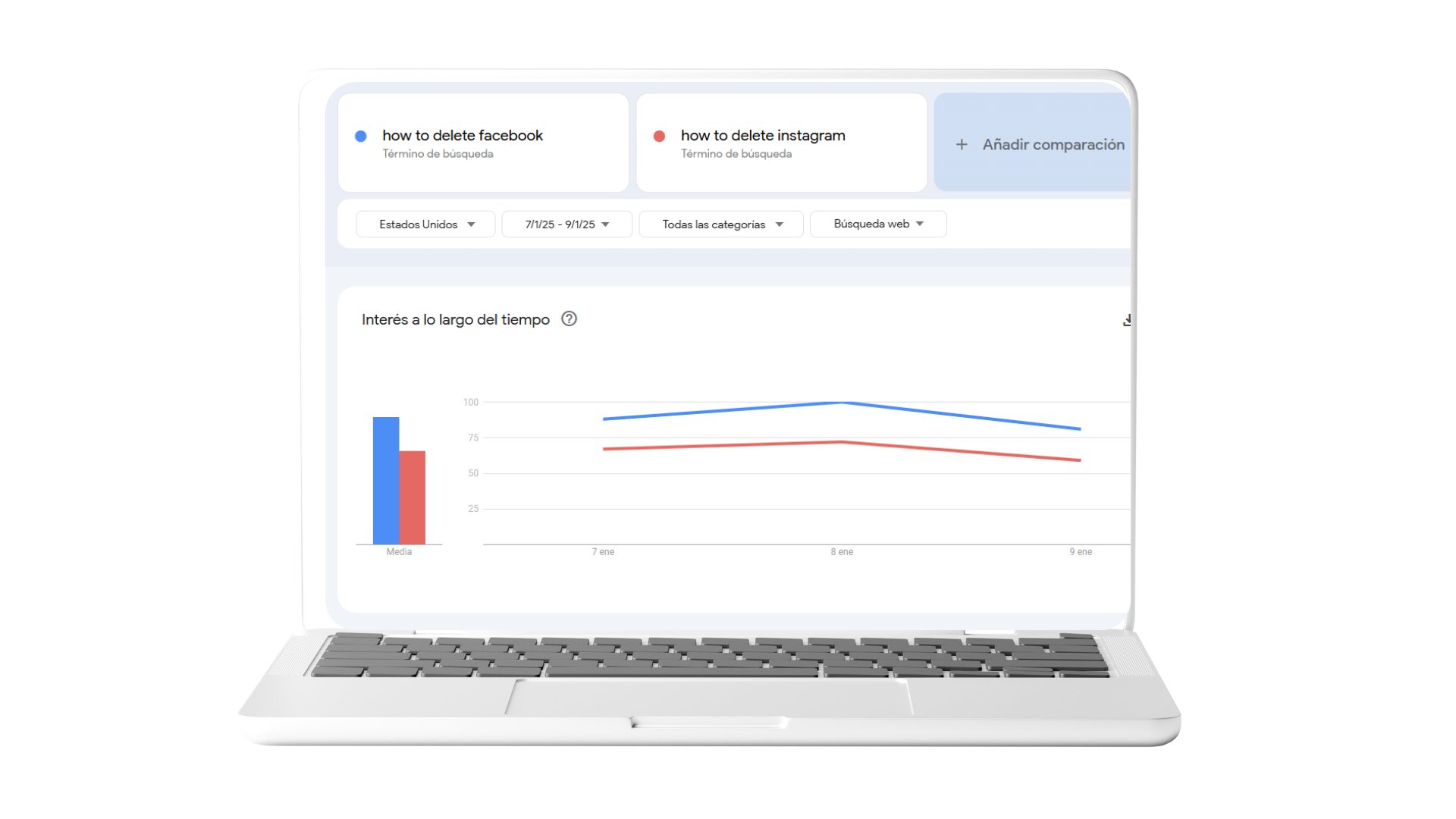“How to Delete Facebook and Instagram” Peaks on Google

It hasn’t been a great week for Meta – at least not in terms of Google searches. Google Trends is booming with searches for how to delete Facebook and Instagram accounts permanently, and it’s no coincidence. After Mark Zuckerberg’s announcement that Meta will be ditching external fact-checkers, many users are seeking alternatives or simply hitting delete on their accounts.
What’s Behind the Search Surge?
The surge in Google searches comes after a series of controversial moves by Meta, particularly the decision to stop using third-party fact-checkers on Facebook and Instagram. This change means that content moderation policies in the US are being relaxed, and algorithms are now less strict when it comes to political content.
Meta has also adopted the “Community Notes” feature, which was first introduced by X (formerly Twitter), fueling concerns about misinformation spreading on their platforms.
It seems that the public is growing increasingly wary of these changes, especially in the United States, where searches for “how to delete Facebook” have reached an all-time high. Many users worry that Meta’s actions could pave the way for more misinformation and harmful content to spread across its platforms.
Need a practical guide to deleting your Facebook account? Check out our article:
A Shift Toward Alternatives
This growing mistrust in Meta has led many to explore alternatives to Facebook, Instagram, and even Threads. Platforms like Bluesky have seen a noticeable rise in interest, as users seek more transparent spaces for social interaction.
According to Google Trends, the spike in searches for deleting Facebook and Instagram accounts permanently coincides directly with Zuckerberg’s announcement on January 7 on his Threads account, highlighting the dissatisfaction with how things are unfolding.
View on Threads
Eugen Rochko, CEO of Mastodon, has weighed in on the situation, warning that Meta’s actions should concern anyone who values the integrity of information. While Zuckerberg claims the move is about “freedom of speech,” many remain skeptical, suspecting political motivations.
For now, it seems like the search for alternatives to Meta’s platforms will continue to grow, as users become more conscious of their privacy and the information they consume online.
Learn more about alternatives like Bluesky and how its decentralized structure reflects the roots of social media platforms:





